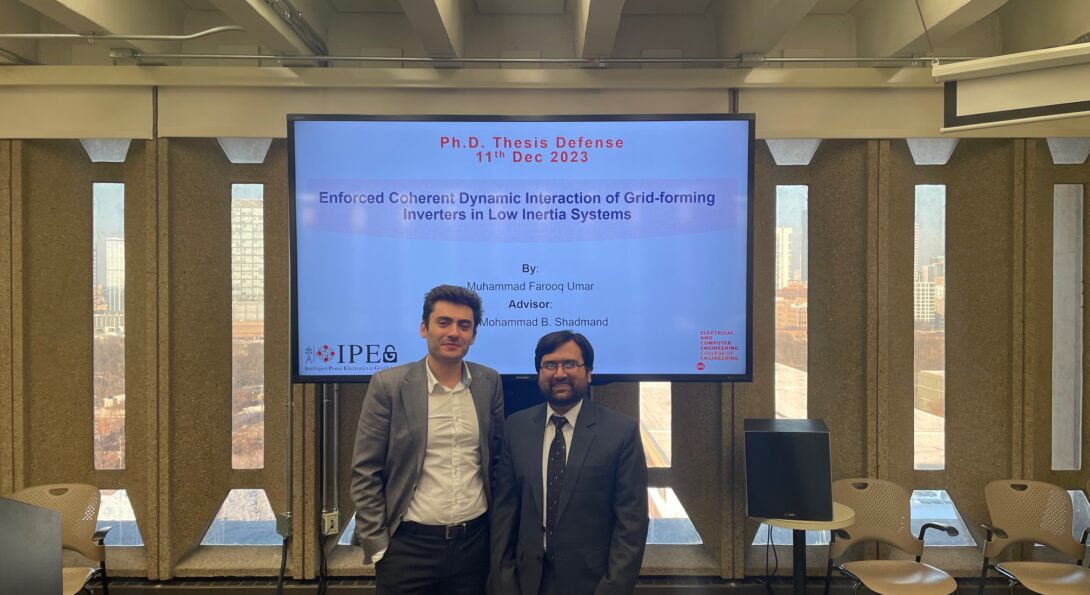Dr. Muhammad Farooq Umar successfully defended his Ph.D. Dissertation

Introduction
Dr. Muhammad Farooq Umar (former IPEG PhD candidate) successfully defended his PhD dissertation on December 11th, 2023. He joined IPEG lab in Fall 2019. IPEG lab wishes him the best of luck in his career and next chapter of his life. Congratulations, Dr. Farooq Umar!
Title of his Ph.D. Dissertation: Enforced Coherent Dynamic Interaction of Grid-forming Inverters in Low Inertia Systems
Summary of Dr. Farooq Umar Ph.D. Dissertation:
Furthermore, this dissertation extends the proposed coherency enforcement control scheme during fault and post-fault conditions in LIPS, incorporating an effective fault detection logic (FDL). The main contribution here is enabling the resilient operation of GFMIs in LIPS during a large-scale disturbance such as a short-circuit fault. The proposed scheme prevents transient instability by inhibiting the acceleration of the voltage angle of GFMIs during short-circuit faults. Moreover, the proposed control scheme facilitates a seamless transition from fault to normal operation. The challenges for the GFLI integrated with weak and ultra-weak LIPS are addressed by proposing an adaptive model predictive control (AMPC) scheme. The AMPC leverages inherent damping characteristics of inverter-side current feedback (ICF) during weak LIPS, integrating a dual-state variable feedback approach with the MPC framework. This approach minimizes tuning efforts and efficiently dampens resonance within three grid cycles. Overall, this dissertation contributes to the understanding and enhancement of the stable and resilient operation of LIPS dominated by GFMIs and GFLIs in various operational conditions.